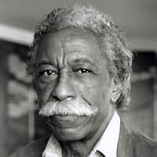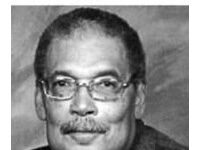 Howard University and The Gordon Parks Foundation today announced a historic acquisition of 252 photographs representing the arc of Gordon Parks’s career over five decades. The breadth of the collection — which spans Parks’s earliest photographs in the 1940s through the 1990s — makes it one of the most comprehensive resources for the study of Parks’s life and work anywhere in the world. The Gordon Parks Legacy Collection, a combined gift and purchase, will be housed in the Moorland-Spingarn Research Center.
Howard University and The Gordon Parks Foundation today announced a historic acquisition of 252 photographs representing the arc of Gordon Parks’s career over five decades. The breadth of the collection — which spans Parks’s earliest photographs in the 1940s through the 1990s — makes it one of the most comprehensive resources for the study of Parks’s life and work anywhere in the world. The Gordon Parks Legacy Collection, a combined gift and purchase, will be housed in the Moorland-Spingarn Research Center.
“Howard University is proud to be the recipient of such an important collection of work by African American artist and photojournalist Gordon Parks,” said Wayne A. I. Frederick, president of Howard University. “Mr. Parks was a trailblazer whose documentation of the lived experiences of African Americans, especially during the civil rights period, inspired empathy, encouraged cultural and political criticism, and sparked activism among those who viewed his work. Having a collection of his timeless photographs in the Moorland-Spingarn Research Center will allow Howard University faculty, students, and visiting scholars to draw on his work and build upon his legacy of truth-telling and representation through the arts.”
A native of Fort Scott, Kansas, Parks, the youngest of 15 children, spent his formative years in the Minneapolis area. As a young teen he left home and got a job playing piano at a brothel. He later worked as a waiter and a Pullman porter. On one train trip he bought a small camera for $12.50 and soon began doing fashion photography shoots for a chic Minneapolis boutique.
After World War II Parks moved to New York and he began a long career as a magazine photographer. His first assignments were for Vogue and then he became the first African American staff photographer for Life magazine where he took on many assignments dealing with the civil rights movement.
Parks published his first novel, The Learning Tree, in 1963. Six years later, Parks produced and directed a movie based on his book. He later directed Shaft and three other feature films. Parks died in 2006.











